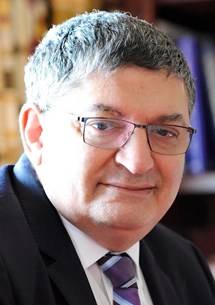Meeting
2022 ASCO Annual Meeting

The Medical Oncology Centre of Rosebank, Johannesburg, South Africa
Bernardo Leon Rapoport , Helen C. Steel , Carol Benn , Simon Nayler , Teresa Smit , Liezl Heyman , Annette J. Theron , Nomsa Hlatswayo , Luyanda LI Kwofie , Pieter Meyer , Ronald Anderson
Background: Checkpoint proteins regulate the immune system. Breast cancer (BC) cells can up-regulate or down-regulate these proteins to evade anti-tumor immune responses. Soluble forms of immune checkpoint molecules (ICMs) can be measured in human plasma. The study aimed to measure the systemic levels of a series of co-stimulatory and co-inhibitory ICMs at diagnosis, post-neo-adjuvant chemotherapy (NAC) and post-surgery in newly- diagnosed BC patients (pts) relative to those of a healthy control group. Methods: Soluble ICMs were measured using multiplex bead array technology in plasma from 72 BC pts and 45 healthy controls. Data was prospectively obtained and levels compared between pre-treatment, post-NAC, and post-surgery using non-parametric tests (Mann-Whitney & Kruskal-Wallis). Results: Pre-treatment levels of the soluble stimulatory molecules viz. GITR (p<0.0001), GITRL (p< 0.020), CD27 (p< 0.024), CD40 (p< 0.021), ICOS (p< 0.009), as well as the inhibitory molecules PD-L1 (p< 0.0001), CTLA-4 (p< 0.005), TIM-3 (p< 0.0004), HVEM (p< 0.0004) were significantly lower in early BC pts compared to controls. Post-treatment, there were significant increases in most ICM levels (Table), with the exception of CTLA-4, which decreased significantly following treatment. On the other hand, pre-treatment plasma concentrations of CCL5 (RANTES) (84.22 vs. 48.72 pg/mL, p<0.0001), M-CSF (84.41 vs 13.34 pg/mL, p<0.0001), FGF-21 (24.36 vs. 8.64 pg/mL, p<0.001) and GDF-15 (806.82 vs. 430.03 pg/mL, p<0.0001) were significantly increased in the breast cancer pts compared to healthy controls. A pathological complete response (pCR) was documented in 65% of pts (mostly TNBC). There were no correlations between pre-treatment ICM levels, CCL5, M-CSF, FGF-21 and GDF-15 and pCR. Conclusions: We identified low levels of stimulatory and inhibitory ICMs in newly-diagnosed, non-metastatic BC pts compared to healthy controls. Following treatment, with the exception of CTLA-4, most of these pre-treatment abnormalities of systemic ICM levels corrected. NAC is associated with upregulation of sPD-L1 and most other ICMs. These results indicate that early BC is associated with down-regulation of soluble stimulatory and inhibitory ICMs. Newly-diagnosed early BC pts appear to have generalized immune-suppression independent of subtype and stage. To our knowledge, this is the first study to describe the effect of treatment on systemic ICMs in early BC pts.
| ICM | Control Median (pg/mL) | Diagnosis (Group A) Median (pg/mL) | Post-NAC (Group B) Median (pg/mL) | Post-surgery (Group C) Median (pg/mL) | Group A vs Group B |
|---|---|---|---|---|---|
| CD80 | 2329 | 1678 | 3048 | 3611 | P < 0,0001 |
| CTLA-4 | 2618 | 1566 | 598 | 687 | P < 0,0001 |
| LAG-3 | 150416 | 131275 | 464880 | 500133 | P < 0,0001 |
| PD-L1 | 3342 | 1647 | 4794 | 5215 | P < 0,0001 |
| TIM-3 | 5047 | 3897 | 9975 | 9615 | P < 0,0001 |
| CD27 | 4577 | 3342 | 5351 | 5427 | P < 0,0001 |
| CD28 | 46135 | 32914 | 44277 | 50058 | P < 0,0415 |
| GITR | 3797 | 1497 | 4035 | 4434 | P < 0,0001 |
| ICOS | 26506 | 15123 | 26586 | 29746 | P < 0,0001 |
Disclaimer
This material on this page is ©2024 American Society of Clinical Oncology, all rights reserved. Licensing available upon request. For more information, please contact licensing@asco.org
2022 ASCO Annual Meeting
Poster Session
Developmental Therapeutics—Molecularly Targeted Agents and Tumor Biology
Developmental Therapeutics—Molecularly Targeted Agents and Tumor Biology
Circulating Biomarkers
J Clin Oncol 40, 2022 (suppl 16; abstr 3044)
10.1200/JCO.2022.40.16_suppl.3044
3044
36
Abstract Disclosures
2021 ASCO Annual Meeting
First Author: Bernardo Leon Rapoport
2023 ASCO Annual Meeting
First Author: Mina Nikanjam
2023 ASCO Annual Meeting
First Author: Sharon Choi
2023 ASCO Annual Meeting
First Author: Peter Moussa